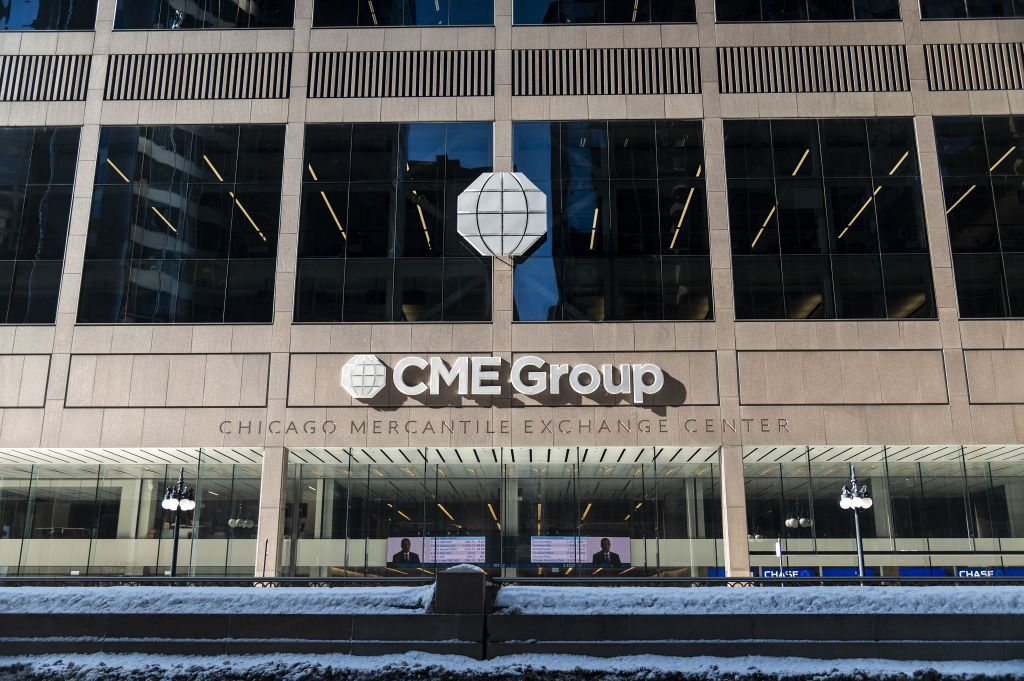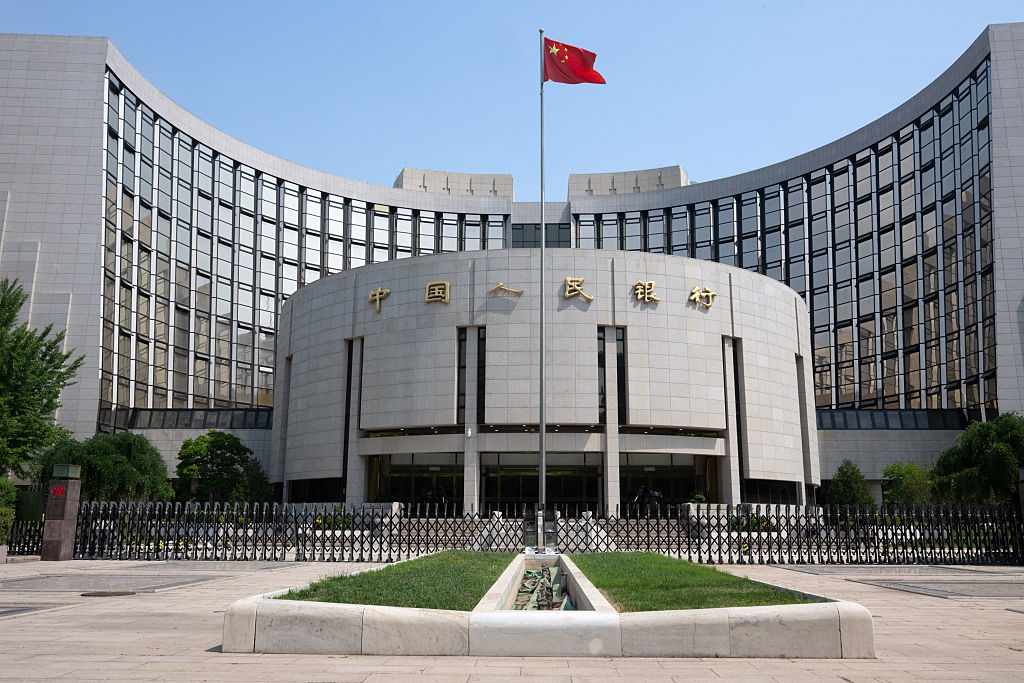What is next for interdealer broker TP Icap?
TP Icap has struggled in a declining market, but there’s still a role for its services. Bruce Packard explains what that is.


Get the latest financial news, insights and expert analysis from our award-winning MoneyWeek team, to help you understand what really matters when it comes to your finances.
You are now subscribed
Your newsletter sign-up was successful
Want to add more newsletters?

Twice daily
MoneyWeek
Get the latest financial news, insights and expert analysis from our award-winning MoneyWeek team, to help you understand what really matters when it comes to your finances.

Four times a week
Look After My Bills
Sign up to our free money-saving newsletter, filled with the latest news and expert advice to help you find the best tips and deals for managing your bills. Start saving today!
When shareholder activists target financial firms, history is not encouraging. In 2005, there was an activist campaign to prevent Deutsche Boerse from buying the London Stock Exchange.
Werner Seifert, the chief executive of the German exchange, lost his job and Rolf Breuer, chairman of the supervisory board, later resigned.
Yet the Deutsche Boerse management could see value where the activists who disliked the deal could not. London Stock Exchange has increased in value by 16 times since the public spat.
MoneyWeek
Subscribe to MoneyWeek today and get your first six magazine issues absolutely FREE

Sign up to Money Morning
Don't miss the latest investment and personal finances news, market analysis, plus money-saving tips with our free twice-daily newsletter
Don't miss the latest investment and personal finances news, market analysis, plus money-saving tips with our free twice-daily newsletter
Then there was Knight Vinke’s activist campaign against HSBC during the 2007-2009 financial crisis, encouraging the bank to take more risk at precisely the wrong point in the credit cycle.
More recently, hedge fund Elliott Management’s six-year fight with Bank of East Asia in Hong Kong and Edward Bramson’s three-year battle with Barclays both ended in failure.
I think the reason for those activist failures is that financial companies tend to be run by dull, unimaginative finance types who try to create shareholder value by doing finance-type things: improve margins, cut costs and announce share buybacks. Any activist who buys the shares in a financial company is fighting an uphill battle, because management are already trying to do the obvious and it hasn’t been working.
A declining market
Now an activist hedge fund called Phase 2 has taken a stake in TP Icap (LSE: TCAP), the interdealer broker (IDB) formed from the all-share merger between Tullett Prebon and Icap in 2016. The shares jumped by 11% in response at the end of March.
Interdealer broking has been in a secular decline since after the financial crisis. IDBs match buyers and sellers (normally bank A versus bank B) without revealing the identity of either and take a small cut of the transaction. As the transaction sizes are large and complex, the counterparties prefer to arrange deals over the phone (known as “voice broking”) rather than type orders into a computer.
The brokers then spend the evenings drinking and sharing “market colour” in the pub, where there are no recorded phone lines or legal and compliance staff. This approach often means banks A and B both receive a better price than if they knew the counterparties that they were dealing with. But it’s easy to see why regulators might dislike the opacity of the “over the counter” (OTC) trades that are not centrally cleared, and resent the alcohol-lubricated unrecorded pub banter. Traders at IDBs were key “enablers” of the Libor rigging scandal.
Thus regulators have been keen to move business away from IDBs to more standardised financial products trading on exchanges with central clearing. Until March, that is, when the drawbacks of exchange-traded contracts have become more obvious.
Saved by the LME
Last month, the London Metal Exchange (LME) – the largest market for industrial metals – suspended trading in nickel for a week and cancelled $3.9bn of trades after Tsingshan, a Chinese steel and nickel firm controlled by billionaire Xiang Guangda, was caught in a short squeeze trying to hedge its nickel production.
The problem seems to have been something that IDBs have warned about: many OTC trades can’t transfer to exchanges because they’re impossible to standardise.
Tsingshan mined nickel, but was shorting the standardised nickel contracts that traded on the LME. Tsingshan’s own nickel output was not in a form that could be settled on the LME.
So a firm that should have benefited from the rising nickel price when Russia invaded Ukraine was instead receiving margin calls and was at risk of failure. That is clearly not ideal. One possibility is that regulators may now accept that the voice broking and OTC trades that TP Icap arranges have a place in the financial system.cial system.
Get the latest financial news, insights and expert analysis from our award-winning MoneyWeek team, to help you understand what really matters when it comes to your finances.

Bruce is a self-invested, low-frequency, buy-and-hold investor focused on quality. A former equity analyst, specialising in UK banks, Bruce now writes for MoneyWeek and Sharepad. He also does his own investing, and enjoy beach volleyball in my spare time. Bruce co-hosts the Investors' Roundtable Podcast with Roland Head, Mark Simpson and Maynard Paton.
-
 Japanese stocks rise on Takaichi’s snap election landslide
Japanese stocks rise on Takaichi’s snap election landslideJapan’s new prime minister Sanae Takaichi has won a landslide victory in a snap election, prompting optimism that her pro-growth agenda will benefit Japanese stocks
-
 Alphabet 'is planning a 100-year bond': would you back Google for 100 years?
Alphabet 'is planning a 100-year bond': would you back Google for 100 years?Google owner Alphabet is reported to be joining the rare century bond club
-
 Should you sell your Affirm stock?
Should you sell your Affirm stock?Affirm, a buy-now-pay-later lender, is vulnerable to a downturn. Investors are losing their enthusiasm, says Matthew Partridge
-
 Profit from pest control with Rentokil Initial
Profit from pest control with Rentokil InitialRentokil Initial is set for global expansion and offers strong sales growth
-
 In the money: how my trading tips fared in 2025
In the money: how my trading tips fared in 2025The success of the open positions offset losses on closed ones, says Matthew Partridge
-
 Coreweave is on borrowed time
Coreweave is on borrowed timeAI infrastructure firm Coreweave is heading for trouble and is absurdly pricey, says Matthew Partridge
-
 Circle sets a new gold standard for cryptocurrencies
Circle sets a new gold standard for cryptocurrenciesCryptocurrencies have existed in a kind of financial Wild West. No longer – they are entering the mainstream, and US-listed Circle is ideally placed to benefit
-
 Profit from other investors’ trades with CME Group
Profit from other investors’ trades with CME GroupCME Group is one of the world’s largest exchanges, which gives it a significant competitive advantage
-
 Investors need to get ready for an age of uncertainty and upheaval
Investors need to get ready for an age of uncertainty and upheavalTectonic geopolitical and economic shifts are underway. Investors need to consider a range of tools when positioning portfolios to accommodate these changes
-
 How much gold does China have – and how to cash in
How much gold does China have – and how to cash inChina's gold reserves are vastly understated, says Dominic Frisby. So hold gold, overbought or not